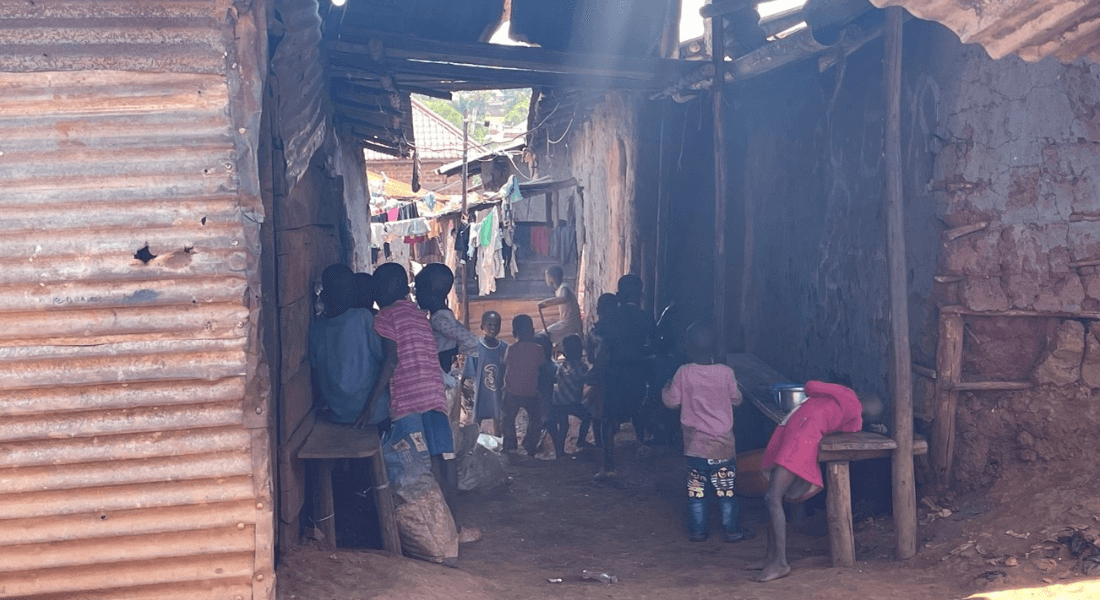Master Thesis Presentation: Paul Morris Musoke
Paul Morris Musoke, CERTIZENS member and recent master's graduate at the Department of Development Studies, Makerere University, presents his thesis on 'Factors Influencing Birth Registration Among the Migrant Karamajong in Jinja District'.

Factors Influencing Birth Registration Among the Migrant Karamajong in Jinja District
What is your research question and where and how did you go about doing your research?
In Uganda, only about one‐third (32%) of children under the age of five have their birth registered with the civil authority. There is limited information on factors linked to birth registration practices in Uganda, especially in the Karamojong in Jinja District due to their unique socio-cultural characteristics and migrant status, which present distinct challenges to birth registration. As a traditional pastoralist group with a history of mobility, the Karamojong often live in remote or semi-nomadic conditions, limiting their access to formal services, including birth registration. Migration further complicates their ability to register births, as they are unfamiliar with local regulations or lack the necessary documentation. Additionally, socio-cultural norms within the Karamojong community influence their views on the importance of birth registration. Despite its significance, this topic has been under-researched, particularly among migrant populations, creating a gap in understanding the specific factors shaping birth registration practices.
Therefore, the study's main objective was to identify the factors influencing birth registration among the migrant Karamojong in Jinja District. Specifically, the research investigates the level of awareness about birth registration processes, the influence of socio-cultural norms, and the practical obstacles encountered during the registration process. To achieve this, I applied a largely qualitative approach. Having first employed stratified random sampling, I then engaged forty participants through focus group discussions, key informant interviews, and participant observation.
What were your key findings and why do they matter?
The findings of this study show that low awareness of birth registration procedures, as well as economic barriers to access, were key factors contributing to low registration rates. Additionally significant are cultural practices, where for example informal recognition like traditional naming ceremonies and clan recognition is prioritized as proof of identity over legal documentation, viewing the former as more meaningful than formal state registration. Furthermore, historical socio-political marginalization, especially following the state’s disarmament period, has exacerbated Karamojong mistrust of formal state systems, including civil registration. The disarmament period refers to a government-led initiative aimed at disarming various ethnic groups in Uganda, including the Karamojong, who had been heavily involved in cattle raiding and possession of illegal firearms. The disarmament was intended to reduce violence and promote peace in the Karamoja region, but it also led to significant social and economic challenges for the Karamojong within both its First Phase (2001–2006) and Second Phase (2006–2010). The disarmament efforts, which involved heavy military intervention and the forced collection of firearms, were perceived as coercive and punitive, further alienating the Karamojong from engaging with government services, including civil registration
Historically, the Karamojong have been marginalized due to their geographic isolation, cultural practices, and limited integration into the national political and economic systems. The Karamojong have often been seen as ‘outsiders’ or ‘different’ from the mainstream Ugandan society, which has led to limited access to essential services, such as education, healthcare, and legal recognition.
The findings highlight the multifaceted barriers to birth registration in the Karamojong community which impact both individual rights and broader social and developmental goals. Birth registration is a fundamental human right, and without it individuals, particularly children, can be excluded from essential services like education, healthcare, and social protections, perpetuating cycles of poverty and marginalization. Additionally, low registration rates contribute to the risk of statelessness, hinder social inclusion, and weaken the government’s ability to plan effectively for its citizens. The Karamojong mistrust of state systems, compounded by historical marginalization and economic barriers, further exacerbates these issues. Addressing these barriers is essential for ensuring equal access to rights and services, fostering trust between marginalized communities and the state, and promoting social cohesion and long-term economic development.
Why is your research relevant for the broader discussion on IDs and citizenship in Africa?
My research examines the barriers to birth registration and legal identification particularly in marginalized communities, and explores how cultural practices, economic challenges, and mistrust in the state intersect to limit access to legal identity. By analysing the relationship between informal systems of recognition (such as traditional ceremonies) and formal state structures, my research contributes to understanding the complexities of citizenship and statelessness. It provides insights for designing inclusive policies that address both practical barriers (for example, access and cost) and socio-cultural issues. This research is linked to broader debates on ensuring legal identity for all (SDG 16.9) by 2030 and supports the creation of more inclusive, culturally sensitive identification systems across Africa, contributing to the development of equitable governance structures.
To access the full thesis, please contact the author via pmusokem@gmail.com.
